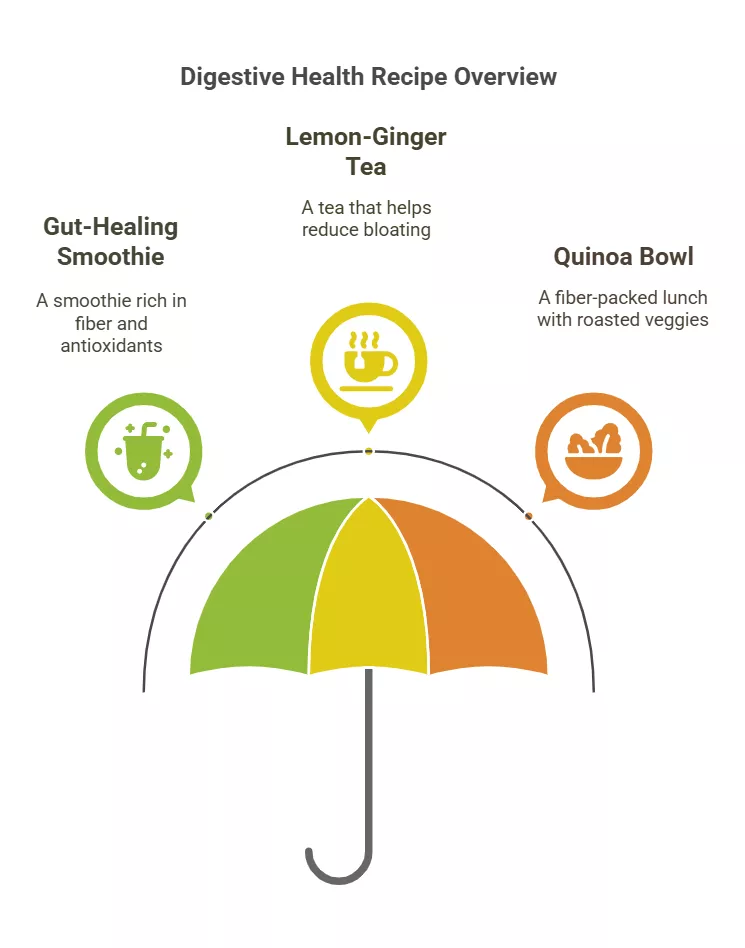Do you dread meals because of bloating, cramps, or sluggish digestion? Millions worldwide face these issues daily, with women especially vulnerable due to hormonal shifts and stress. Slow digestion—or digestion lenta—can drain your energy and disrupt life. But you don’t need drastic diets or pills to fix it. This guide shares simple, science-backed strategies to revive your gut health, including the best holistic digestive solutions, safe supplements like Power Digest, and exercises designed for your body. Let’s explore how to turn your digestive struggles into lasting wellness.
Understanding Slow Digestion (Digestion Lenta)
Slow digestion occurs when food moves too slowly through your digestive tract, leading to bloating, constipation, or discomfort. Common triggers include diets low in fiber, dehydration, or sedentary habits. For women, hormonal changes during menstruation, pregnancy, or menopause can relax digestive muscles, worsening the issue. Stress also plays a role—when your body is tense, digestion takes a backseat. A 2023 study in Gut Health Today found that women over 30 are twice as likely as men to report chronic digestive slowdowns, often linked to progesterone fluctuations.
Holistic Digestive Solutions: Food and Lifestyle Shifts
Start by nourishing your gut with fiber-rich foods like oats, berries, and leafy greens. These foods add bulk to stools and feed good gut bacteria. Fermented options like yogurt, kefir, or sauerkraut introduce probiotics, which balance your microbiome and ease inflammation. Drinking enough water is critical—aim for 8–10 glasses daily, infused with lemon or mint for added enzyme support.
Stress management is equally vital. Practice deep breathing exercises: sit comfortably, inhale for four counts, hold for two, then exhale slowly for six. Repeat this for five minutes daily to activate your body’s “rest-and-digest” mode. Gentle yoga or a 10-minute walk after meals can also calm your mind and stimulate digestion.
Exercise for Better Digestion: Simple Moves Everyone Can Do
Physical activity doesn’t require intense workouts. A brisk 10-minute walk after eating kickstarts digestion by encouraging intestinal contractions. Yoga poses like the seated spinal twist gently massage internal organs—sit with legs straight, bend one knee, and twist your torso toward the bent leg, holding for 20 seconds. Pelvic tilts, done lying on your back with knees bent, strengthen abdominal muscles and ease bloating common in women. For a relaxing stretch, try the child’s pose: kneel, sit back on your heels, and stretch your arms forward while breathing deeply.

Supplements for Good Digestive Health: What to Consider
While whole foods come first, some supplements offer extra support. Probiotics containing Lactobacillus or Bifidobacterium strains replenish good bacteria, easing bloating and irregularity. Digestive enzymes like amylase or lipase help break down carbs and fats if heavy meals leave you uncomfortable. Power Digest, a blend of ginger, peppermint, and fennel, reduces inflammation and accelerates digestion naturally. Fiber supplements like psyllium husk can also aid regularity—just drink plenty of water to avoid constipation. Always consult a healthcare provider before starting new supplements, especially during pregnancy.
The Digestive System in Women: Unique Challenges and Fixes
Women’s digestive health is deeply tied to hormones. Rising progesterone during the menstrual cycle or pregnancy slows gut motility, often causing constipation. Pelvic floor weakness postpartum can also hinder bowel movements. To counter this, focus on fiber-rich meals during your period and practice pelvic floor exercises like Kegels: tighten the muscles you’d use to stop urinating, hold for five seconds, and release. Repeat 10 times daily. Tracking symptoms in a journal helps identify hormonal patterns and tailor solutions.
Are Digestives Healthy? Debunking Common Myths
Many reach for “digestive” teas or biscuits hoping for quick relief, but these often contain hidden sugars or laxatives that harm long-term gut health. For instance, popular digestive biscuits pack refined flour and sugar, spiking blood glucose and worsening inflammation. Instead, opt for herbal teas like ginger or chamomile, which soothe the stomach without side effects. Snack on whole-food alternatives like oatmeal cookies sweetened with mashed bananas or dates. For more gut-friendly options, explore our list of top anti-inflammatory foods that fight inflammation naturally.
7. Building a Daily Routine for Lifelong Gut Health
Consistency is key. Begin mornings with warm lemon water to hydrate and wake up your digestive system. Pair this with gentle stretches or yoga to stimulate blood flow. At meals, prioritize fiber and probiotics—add a handful of spinach to smoothies or a spoonful of sauerkraut to salads. Chew each bite thoroughly to ease the workload on your gut. Wind down evenings with a probiotic supplement or a cup of peppermint tea, paired with gratitude journaling to reduce stress.
Bonus: Easy Recipes to Support Digestion
- Gut-Healing Smoothie: Blend spinach, frozen mango, almond milk, and a teaspoon of chia seeds for fiber and antioxidants.
- Lemon-Ginger Tea: Steep fresh ginger slices in hot water with lemon juice and honey to reduce bloating.
- Quinoa Bowl: Mix cooked quinoa with roasted veggies, avocado, and a sprinkle of pumpkin seeds for a fiber-packed lunch.

Conclusion
Slow digestion doesn’t have to control your life. With holistic digestive solutions like mindful eating, gentle exercise, and natural supplements such as Power Digest, you can restore balance to your gut. Women, pay special attention to hormonal cycles and pelvic health—small tweaks make a big difference. Start with one or two tips from this guide, and gradually build habits that fit your lifestyle. Your gut—and overall health—will thank you.
